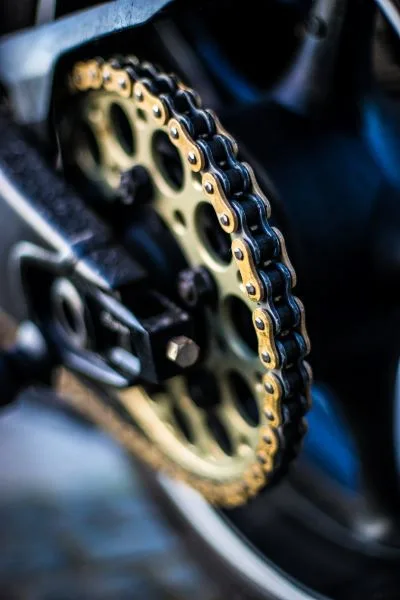A few quick bike mechanical checks can be crucial for your safety and the efficiency of your ride. Before you head out on your bike, I’d highly recommend a quick check of five key components whether using a road bike or a mountain bike:
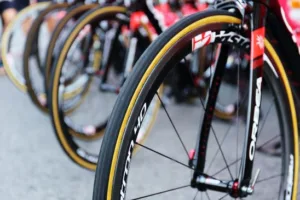
Tires
Assuming you aren’t using tubeless tires, firstly ensure they are inflated properly. Since there are many different types of tires, examine the sidewall of the tire to learn the correct PSI to inflate to. An underinflated tire is less efficient and more likely to puncture. Overinflating can lead to the tire bursting (a loud and rare but sometimes traumatic event which I’ve thankfully avoided thus far). Look for any signs of damage, such as cuts or excessive wear. If you are using tubeless tires, there is much less risk of any maintenance problem but do ensure there aren’t any massive holes or leaks of fluid.
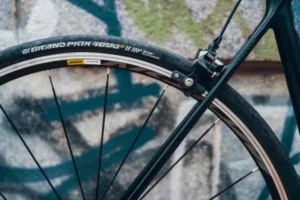
Brakes
Squeeze the brake levers to check if they engage smoothly and that there’s adequate resistance. Inspect the brake pads to ensure they have enough material left and are not excessively worn (replace if so). Disc brakes should be more robust in terms of maintenance, but if you notice an issue when testing the levers, the fix is likely to be a bit more complicated.
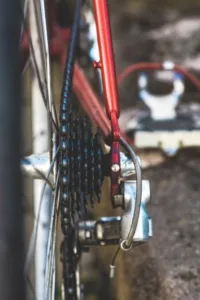
Chain and Drivetrain
Examine the chain for signs of rust, dirt buildup, or kinks. Lubricate the chain if it appears dry or squeaky (but be mindful that overlubricating is also detrimental and will lead to dirt buildup). I recommend shifting through a few gears when beginning your ride as a test of the gearset. If you notice issues with shifting, you may need to adjust the derailleurs or (more infrequently) replace the cables.
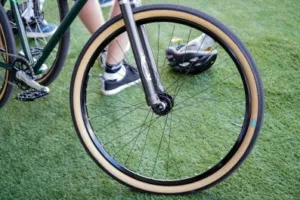
Wheels
Most importantly, check the quick-release skewers or thru-axles to ensure they are securely fastened. A wheel coming off is a rare event but this could be extremely dangerous. Do a quick check to see if the wheels are wobbly or bent. This should not occur if you haven’t had a major impact, but if so wheel replacement is necessary.
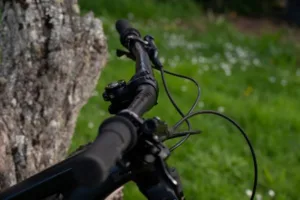
Bearings and Bolts
Wiggle the handlebars and in particular the saddle, and both wheels to check for any play, which may indicate loose bearings. Tighten any loose bolts, but be cautious not to overtighten and damage the components. Ensure the pedals are securely attached, and the crank arms do not wobble. The most common issue here is usually the saddle, ensure when adjusting that the bolt is secure.
Conclusion
In conclusion, I HIGHLY recommend carrying basic tools and a spare inner tube when riding. Call me paranoid, but I do this even if riding a bike with tubeless tires just in case something goes very wrong. Regular maintenance, such as cleaning, lubricating, and periodic tune-ups at a bike shop, will prolong the life of your bike and ensure that it remains mechanically sound. Conducting these quick bike mechanical checks will help you to enjoy a safer and more enjoyable cycling experience on an ongoing basis!

